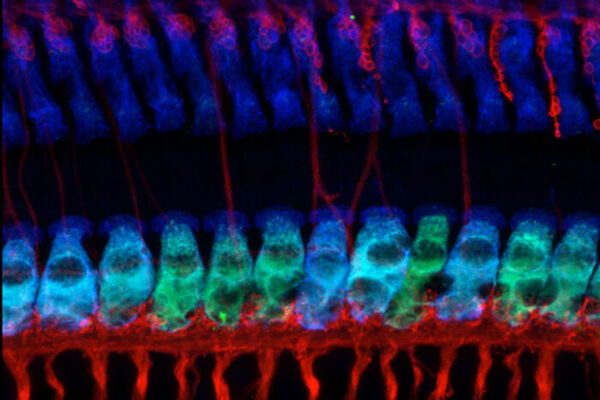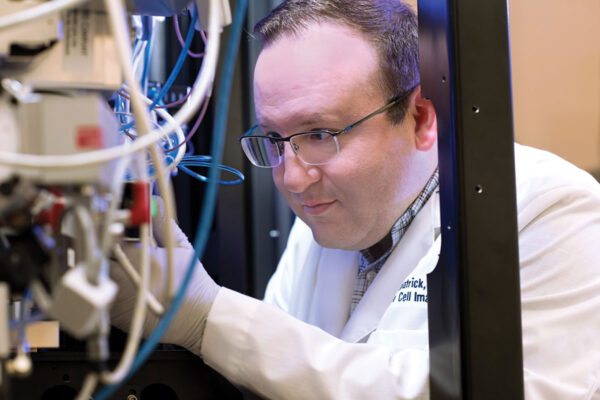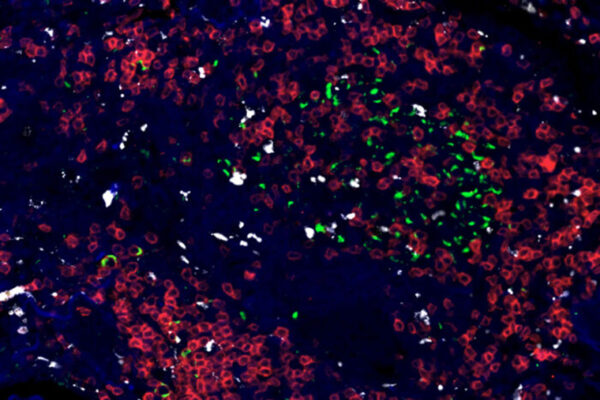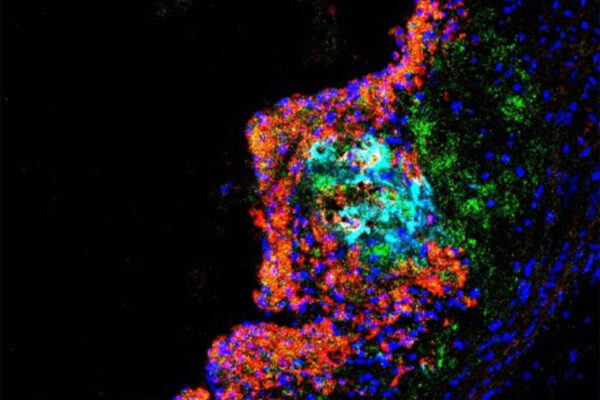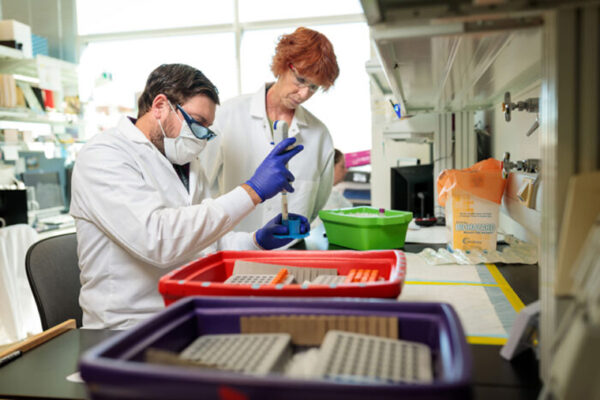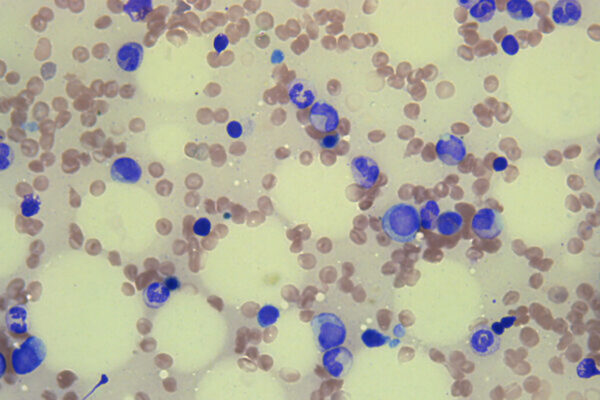Noise-induced hearing loss blocked with drug compound
Studying mice, researchers at the School of Medicine and their colleagues have shown that a drug compound can block damage caused by too much glutamate signaling, raising the possibility of medication that prevents noise-induced hearing loss.
Fitzpatrick elected to microscopy society governing council
James Fitzpatrick, professor of neuroscience and of cell biology and physiology at Washington University School of Medicine in St. Louis, has been elected biological sciences director of the Microscopy Society of America. He will serve a three-year term on the society’s governing council beginning in 2020.
Immune responses to tuberculosis mapped across 3 species
A new study led by the School of Medicine lays out a genetic road map of immune responses to tuberculosis (TB) infection across three species.
1 in 4 kids who get antibiotics in children’s hospitals are prescribed the drugs incorrectly
New research led by the School of Medicine indicates that 1 in 4 of the children given antibiotics in U.S. children’s hospitals are prescribed the drugs inappropriately. The overuse of antibiotics poses an increasing threat to children who develop — or already have — drug-resistant infections.
Miller receives international innovation prize
Timothy Miller, MD, PhD, the David Clayson Professor of Neurology at Washington University School of Medicine in St. Louis, and a group of his colleagues have received the inaugural Healey Center International Prize for innovation in amyotrophic lateral sclerosis (ALS) research from the Sean M. Healey & AMG Center for ALS at Massachusetts General Hospital.
High-protein diets boost artery-clogging plaque, mouse study shows
High-protein diets may help people lose weight and build muscle, but a School of Medicine study in mice suggests they also lead to more plaque in the arteries. The findings also show that high-protein diets spur unstable plaque, the kind most prone to rupturing and causing blocked arteries.
‘Jumping genes’ help stabilize DNA folding patterns
New School of Medicine research indicates that “jumping genes” play a surprising role in stabilizing the 3D folding patterns of the DNA molecule inside a cell’s nucleus.
Board of Trustees grants faculty appointments, promotions
At the Washington University in St. Louis Board of Trustees meeting Dec. 6, several faculty members were appointed or promoted with tenure, with most becoming effective Jan. 1.
$29 million for new phase of international Alzheimer’s study
School of Medicine researchers have received $29 million from the National Institute on Aging of the National Institutes of Health to continue a long-running, international Alzheimer’s study aimed at understanding how the disease develops and progresses.
Mutations in donors’ stem cells may cause problems for cancer patients
A new study from the School of Medicine suggests that bone marrow — or blood stem cells — from healthy donors can harbor extremely rare mutations that can cause health problems for the cancer patients who receive them. Such stem cell transplants are important for treating blood cancers, including acute myeloid leukemia.
View More Stories
